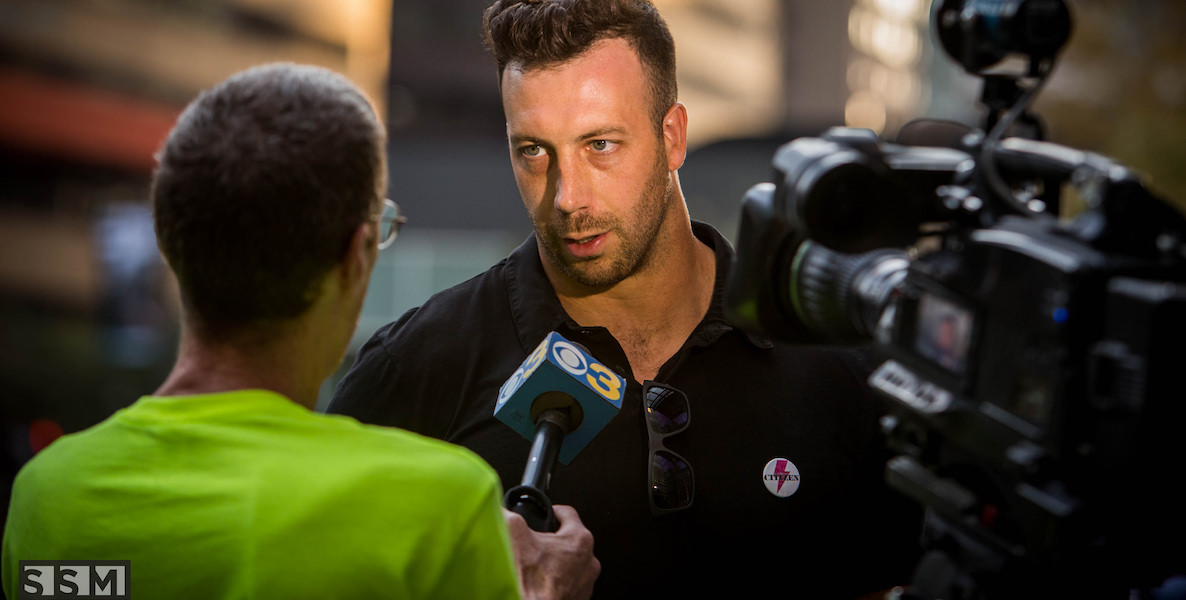The comparison between Seattle and Philadelphia is particularly difficult, because we have such different racial and ethnic compositions. “Seattle is 70 percent white, 14 percent Asian and 8 percent black,” says Professor Richardson Dilworth of Drexel’s Center for Public Policy. “We, of course, are mostly equal parts white and black, and most Sunbelt cities tend to be some mix of mostly white and Hispanic. Cities like Chicago, Philadelphia and Washington, D.C. were on the path of the Great Migration and bore the responsibility of integrating a white working class population with a largely poor population. This is a challenge western cities—especially northwestern cities like Seattle—never faced. So while geographic segregation in Philadelphia is certainly nothing to be proud of, neither is the lack of ethnic and racial integration in Seattle. They are simply incomparable phenomena.”
Cost of living is the other glaring difference between our two cities. “According to the Census, for 2010-2014, the median value of an owner-occupied housing unit in Seattle was three times that in Philadelphia, $438,000 compared to $143,000,” says Dilworth. “Yet the median salary in Seattle was only slightly less than twice that of Philadelphia, $67,000 versus $37,000. According to the Seattle Times, Seattle rents have been rising faster than any other city in the country.”
The bottom line is that Seattle is an affluent, very white city, one with a highly educated population: 58 percent with a bachelor’s degree or higher, compared to 24.5 percent in Philadelphia. And Dilworth says the issue of race will remain a significant differentiator between our two cities moving forward.
“Seattle is tucked away in the northwestern United States—the same part of the country, it’s worth noting, that many white nationalists see as the ideal place to create a separate Aryan nation,” Dilworth says. “Philadelphia has had to confront the fundamental American dilemma of race. As a city we have not always lived up to that challenge, and in some ways maybe we have failed, but at least no white nationalist groups are looking to establish an Aryan nation in the Northeast urban corridor.”
Seattle Idea To Steal: The Innovation Gene
Is there a city in America that transports more of its innovations across the globe than comparatively tiny Seattle? The Emerald City consists of only 662,000 residents, though its population is growing. But think of all that it has contributed: Boeing’s jets, Microsoft’s software, Amazon’s retail disruption, Starbucks’ rebranding of coffee.
Well before Gates, Bezos and Schultz, Seattle was essentially a one-industry town. In the early ‘70s, Boeing employed 135,000 local residents. But, post-Vietnam, oil prices skyrocketed and Seattle went through the “Boeing Bust”; over a two-year period, the company cut its local workforce in half.
It was a painful time—unemployment reached 17 percent and an infamous billboard appeared reading, “Will The Last Person Leaving Seattle Please Turn Out The Lights?” But the way Seattle bounced back from the Boeing bust is instructive. People toughed it out. They didn’t leave. Instead, engineers chose to drive cabs to make ends meet.
Margaret O’Mara is a historian at the University of Washington, who studies high-tech industries. She received her doctorate at the University of Pennsylvania 13 years ago, before heading west. Once she started researching the Boeing Bust, she was struck by how many Seattle residents stayed—in defiance of economic common sense. “With the Boeing bust, suddenly everything goes sideways, but people don’t leave,” she told the Seattle Times. “It’s crazy, right? They’re ‘turning out the lights,’ and machinists and engineers should be leaving, but … well, ‘I have my boat, and I ski; it’s my community. I care about this place.’ A remarkable number of people stuck around.”
According to O’Mara, businesses in Seattle tend to be inventive because people chose place over career, and decide on reinventing themselves instead of packing up and looking for greener pastures.
“My argument would be that the Boeing Bust forced people to do something different,” O’Mara told the Seattle Times. “That laid the groundwork for a new wave of innovation.”
In that sense, there’s a direct link between the Boeing Bust and Gates, Bezos and Schultz. Bezos has explicitly acknowledged this, funding the Bezos Center for Innovation at the Museum of History & Industry, an exhibit that chronicles “Seattle’s role as a nexus of big ideas and new directions.”
By the way, Boeing? Though Seattle is no longer its corporate headquarters, it, too, has shown resilience, currently back up to employing some 80,000 Seattle residents. The Seattle story, says O’Mara, is similarly a comeback tale. “Seattle’s always been a city remaking itself,” she said. That’s a culture many Rust Belt cities like ours would be wise to try and emulate.
Connor Barwin is the Eagles defensive end and runs the Make The World Better foundation, which works to refurbish city parks.
Photo header by SSM Photography

